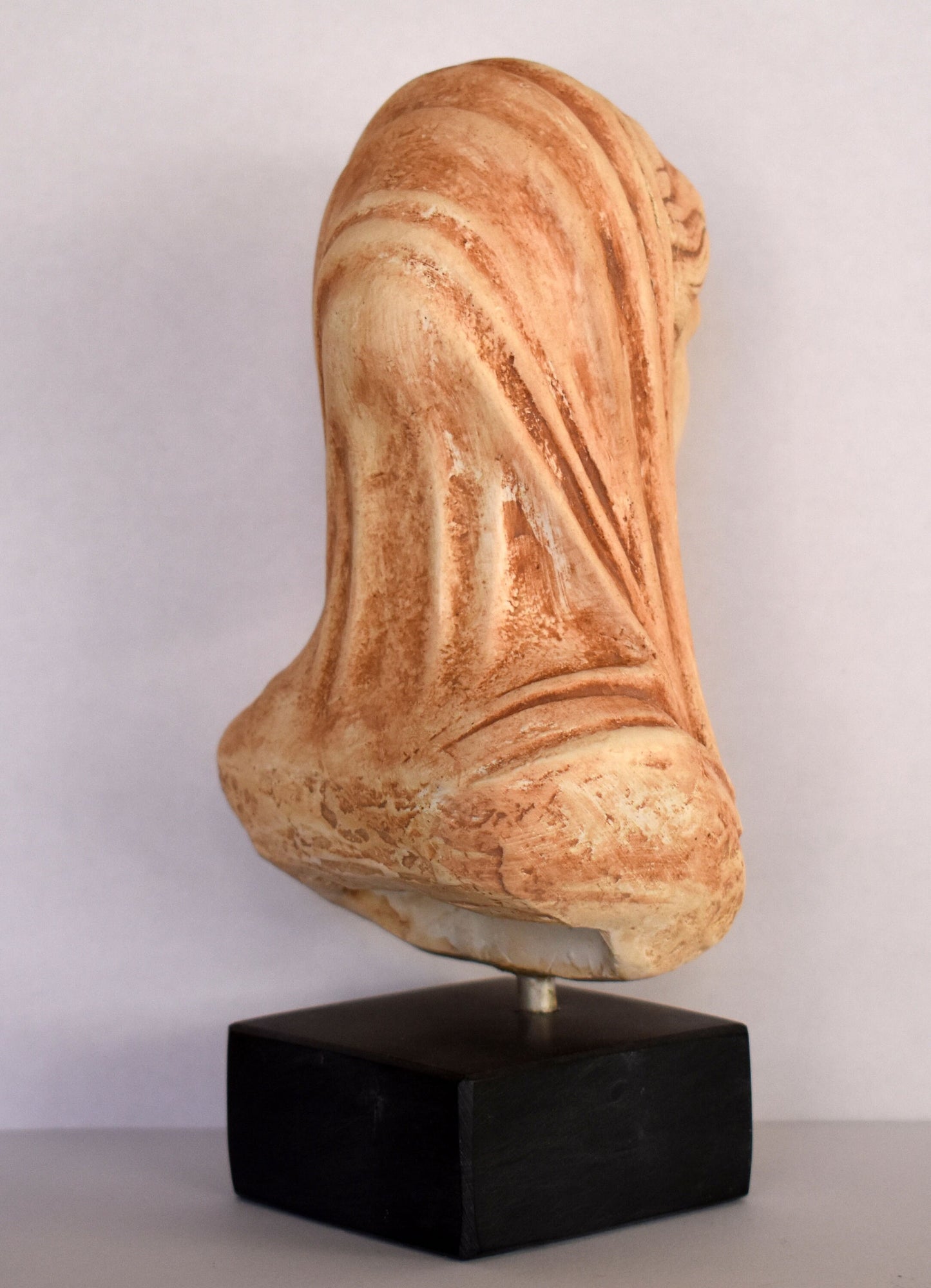Gallery Demeter
Olympias - 375–316 BC - Wife of Philip II - Mother of Alexander the Great - Replica - Head Bust - Casting Stone
Olympias - 375–316 BC - Wife of Philip II - Mother of Alexander the Great - Replica - Head Bust - Casting Stone
Regular price
€79,90 EUR
Regular price
Sale price
€79,90 EUR
Unit price
per
Tax included.
Shipping calculated at checkout.
Couldn't load pickup availability
Item Specifics
Condition: New, Made in Greece.
Material: Casting Stone with Bronze color effect
Height: 18 cm - 7,1 inches
Width: 9 cm - 3,5 inches
Length: 8,5 cm - 3,3 inches
Weight: 900 g
Alexander the Great was one of the greatest leaders and conquerors that the world has ever seen. However, Alexander would have never gone on to create one of the largest empires in the ancient world without his mother, Olympias.
Olympias, originally named Myrtle, was the daughter of King Neoptolemus I of Epirus, who was the King of the ancient Greek tribe in Epirus: Molossians. Her brother, Alexander I would later rule the tribe from 350–331 BC. Her family claimed to be descendants of the former mythological Greek King, Aeacus. They also claimed to descend from Achilles – the Greek hero of the Trojan War.
Her father died in 360 BC, and her uncle, Arybbas took the throne. Arybbas made a treaty with the King of the Macedonians, Philip II. As a result of the new alliance, Arybbas married Olympias off to Philip in 357 BC. Philip would win a horse race in the Olympic Games the following year, and it was at this point that she started being referred to as Olympias. This was the same year that she gave birth to their first child, Alexander. In circa 355 BC, their second child, Cleopatra, was born.
Philip walked in to find Olympias sleeping with snakes, which basically brought an end to their relationship. Olympias was known to be a devout member of the cult, Dionysos. Dionysos, in Greek mythology, was the son of Zeus and Semele who had a cult dedicated to him. Olympias, who was a longtime member of the cult, may have introduced the practice of snake handling to the cult.
Olympias made it her life’s main mission to ensure that Alexander would one day be King. Olympias was a devoted mother to her young son and was constantly reminding him of his ancestral lineage to Achilles, which would have a powerful impact on Alexander. He reportedly carried a copy of the Iliad with him at all times. Moreover, he made sure to visit what was left of Troy to pay his respects to his ancestor when he entered Asia Minor. Olympias was also determined to provide Alexander with an excellent education. She had him taught by Leonidas of Epirus and the famed Aristotle.
Problems arose when Philip divorced Olympias to marry Cleopatra-Eurydice. As Alexander was only half-Macedonian, many desired Philip to marry a full blood to provide him with a full-blooded heir. Philip went so far as to claim Alexander was not even his son. Olympias was also in danger of no longer being a diplomatic link between Macedonia and Epirus. This was due to her daughter, Cleopatra marrying Olympias’s brother, Alexander – the current King of Epirus.
Olympias and Alexander would return to Epirus after Alexander had gotten up to fight his father after a verbal assault at the latter’s wedding. Some believe Olympias intended to convince her brother to declare war on Macedonia in revenge. However, Philip reconciled with his son and allowed both Alexander and his mother to return to Macedonia.
In 336 BC, Philip was assassinated. Some believe this was ordered by Olympias since she had Cleopatra-Eurydice and her children killed after Alexander came to the throne. Reportedly, Olympias told her son, before he headed to Asia Minor, that Zeus was his true father, and he must “act with courage, something suitable to his divine origin,” according to Professor Wasson.
Tragically, he would not see his mother again after he began his travels to Asia. He died in 323 BC, and Olympias wanted her grandson to be King. To see her grandson reign, she chose to join forces with Aeacides, King of Epirus and her cousin. With him, they attempted to invade Macedonia, where she had Alexander’s half-brother Phillip and his wife Eurydice killed along with hundreds of Macedonians who were loyal to Cassander. Cassander, the current regent, was who Olympias believed to stand in the way of her grandson, Alexander ascending the throne. The invasion failed, and Olympias was captured by Cassander. While Cassander had originally promised to not execute her, he took back his offer and saw that she was put to death in 316 BC. He would go on to put her grandson and daughter-in-law to death six years later.
Olympias has been described by historians as “arrogant, meddlesome, and headstrong.” She was arguably the most influential person in Alexander’s life and the driving force behind his rise to the throne. Professor Donald Wasson from Lincoln College said, “From her, he inherited not only his love of learning but also his fiery nature, [his] strength of character and as one historian put it — ‘his thirst for blood’.”









